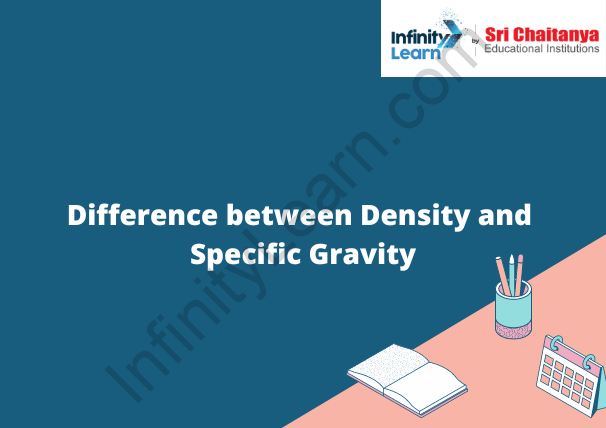Table of Contents
Difference between Density and Specific Gravity
Density and specific gravity are two physical properties of a substance that are used to describe its composition and behavior. While they are related, they are not the same thing. Here are some key differences between density and specific gravity:
- Density: Density is a measure of the mass of a substance per unit volume. It is usually expressed in units of grams per cubic centimeter (g/cm^3). Density is an intrinsic property of a substance, which means that it is independent of the amount of the substance and the size of the sample.
- Specific gravity: Specific gravity is a measure of the density of a substance relative to the density of water. It is defined as the ratio of the density of the substance to the density of water. Specific gravity is usually expressed as a dimensionless number, with no units.
- Calculation: Density is calculated by dividing the mass of a substance by its volume. Specific gravity is calculated by dividing the density of a substance by the density of water.
- Uses: Density is used in a variety of applications, such as the measurement of mass, volume, and concentration. Specific gravity is commonly used in the fields of chemistry and engineering to compare the densities of different substances.
- Limitations: Density is only useful for comparing substances that have the same physical state (solid, liquid, or gas). Specific gravity is only useful for comparing substances that are liquids or solids, as the density of a gas is dependent on temperature and pressure.
Density and SG
Density is a measure of how much mass is contained in a given volume. The specific gravity of a substance is a measure of how dense it is compared to a standard. The standard for specific gravity is water, which has a density of 1.0 gram per cubic centimeter. substances with a specific gravity greater than 1.0 are denser than water, while those with a specific gravity less than 1.0 are less dense.
The density of a substance can be calculated by dividing its mass by its volume. The specific gravity of a substance can be calculated by dividing its density by the density of water.
Density is usually expressed in units of grams per cubic centimeter (g/cm3). Specific gravity is a dimensionless quantity, which means it does not have any units. It is simply a ratio of one density to another.

What is the Definition of Density?
Density is a measure of the mass of an object per unit of volume. The higher the density of an object, the more mass it has in a given volume.
What is the Definition of Specific Gravity?
The definition of specific gravity is the ratio of the density of a substance to the density of a reference substance. The reference substance is typically water for liquids and solids, and air for gases.
How to Calculate Density and Specific Gravity
Density is a measure of how much mass is contained in a given volume. Specific gravity is a measure of how much mass is contained in a given volume when compared to the same volume of water. To calculate density, divide the mass by the volume. To calculate specific gravity, divide the mass by the volume and then divide that answer by the density of water.






